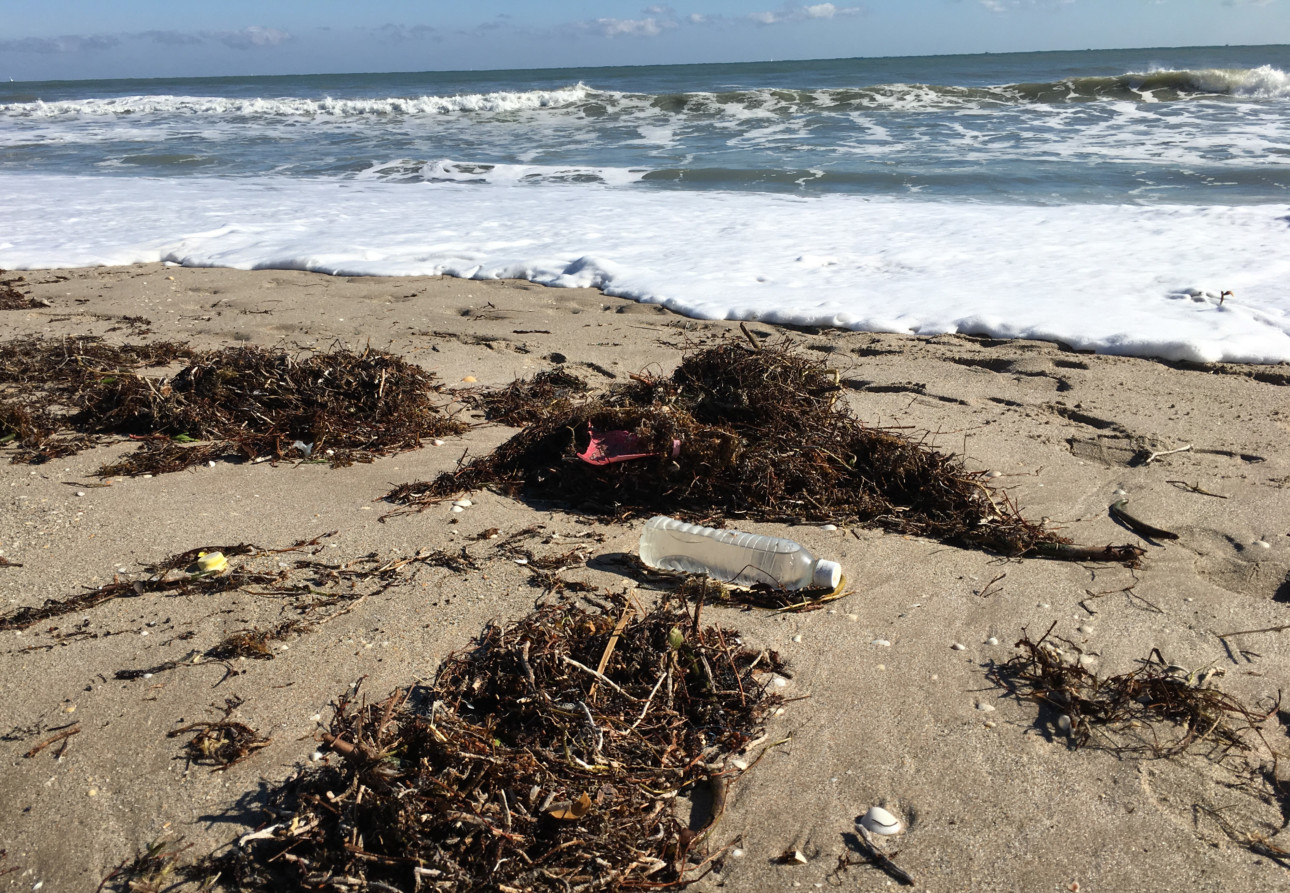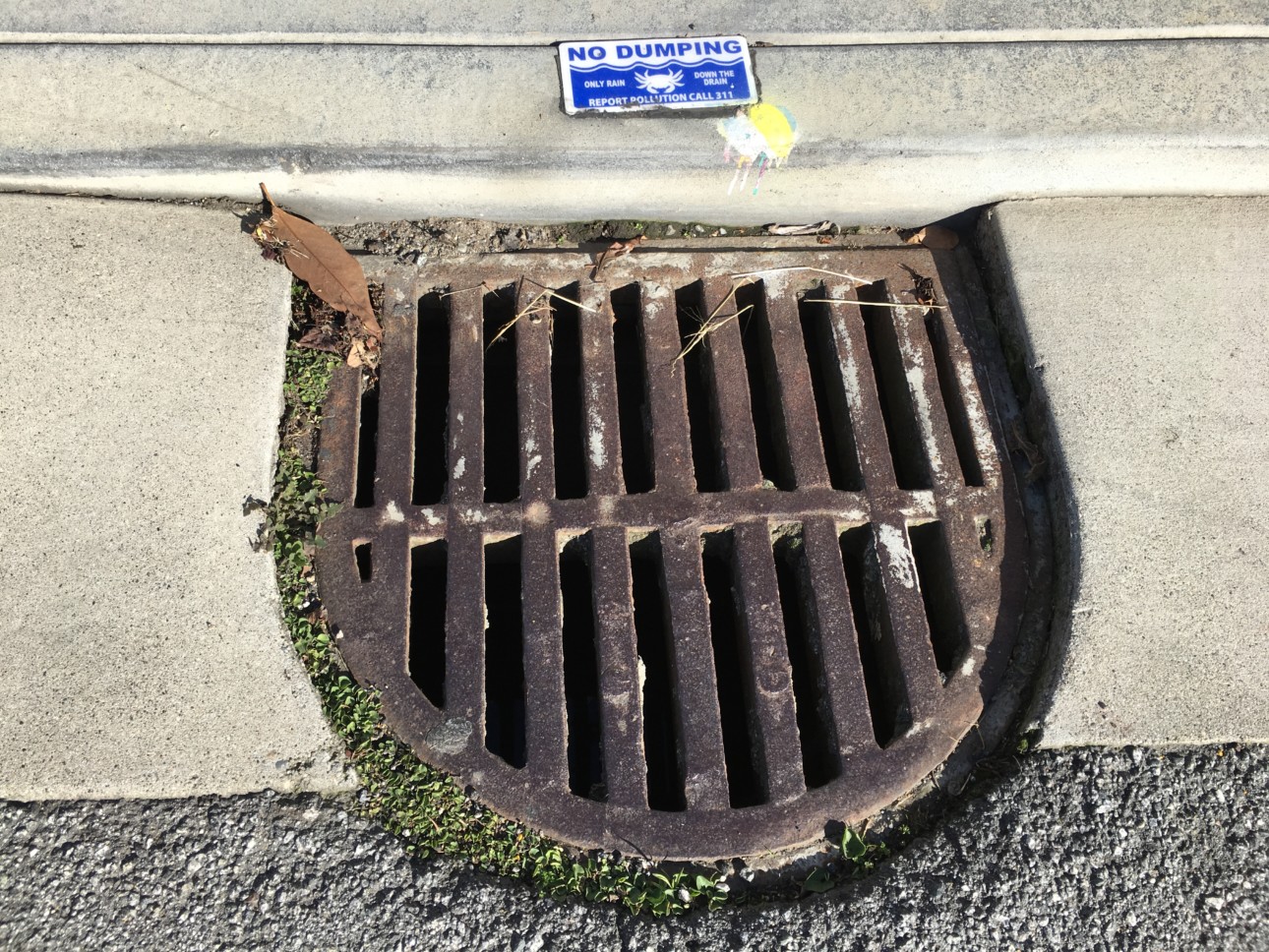Over the holidays, I spent a week in Florida with my family. One day, after a storm blew through, I took a walk along the ocean and was alarmed at the amount of plastic waste I saw washed up on the beach. Entangled in giant heaps of seaweed and scattered in the sand, there were water bottles, bags, straws, packaging materials, broken toys, flip flops, the odd colander, and an astonishing amount of bottle caps in every color of the rainbow. This was limited to a few untended sections of the beach, but only because most of the hotels and condos lining the dunes had cleared their beachfronts to keep things pretty. It was sickening to imagine how much more plastic would be there if they hadn’t whisked it away.
 It was then that I decided this would be the year I would commit to minimizing my own – as well as my family’s – contribution to this plastic mess. It wasn’t the first time I’d seen plastic garbage on the beach or heard about the problem of plastics in our oceans, but for whatever reason, it was the first time I’d felt compelled to do something about it.
It was then that I decided this would be the year I would commit to minimizing my own – as well as my family’s – contribution to this plastic mess. It wasn’t the first time I’d seen plastic garbage on the beach or heard about the problem of plastics in our oceans, but for whatever reason, it was the first time I’d felt compelled to do something about it.
Here are 12 things that I have done, am doing, or will do, to reduce the size of my family’s plastic footprint and to help save our oceans:
Watch “A Plastic Ocean”: When we returned home from our trip to Florida, I did some research and learned about the non-profit organization, Plastic Oceans. After watching their moving 2016 documentary, “A Plastic Ocean” (available on Netflix) I felt even more inspired to act. As they say in the film, from knowing comes caring and from caring comes change.
Use reusable containers instead of plastic bags for lunches and snacks: Plastic Oceans reports that 20-30 billion pounds of plastics wind up in the ocean each year, the majority of which consists of single-use plastics. In other words, items that are generally used just one time before they are thrown away – like plastic bags, straws, and water bottles. I’m embarrassed to admit that I have used probably thousands of plastic bags for my kids’ snacks and lunches over the years; going forward, I will use only reusable containers.
Buy compostable bags: While I still need to look into what’s out there, I plan to spend the extra money to purchase biodegradable bags to use in lieu of plastic bags, in those cases where a bag is necessary and compostables are available.
Wash and reuse Ziploc bags: Ziploc bags are extremely useful and convenient, it is true, and there are times when only a Ziploc bag will do. While I will try to stop using them as much as possible, when I do, I will wash the bags out and reuse them instead of just throwing them away.
Use reusable shopping bags: Ever since San Francisco began requiring stores to charge for grocery bags, it seems that most of us have gotten into the habit of bringing our own reusable shopping bags to pack up the groceries. This is one thing that I actually have been doing for many years and will continue to do.
Stop using plastic bags for produce: I never really thought about just how wasteful it is to use the plastic bags supplied by grocery stores for bagging produce, until I learned that the average lifespan of a plastic bag, i.e., the amount of time a bag is used before being thrown away, is around 20 minutes! From now on, my produce will go in the shopping cart unbagged.
Stop buying bottled water: Plastic water bottles and plastic bags are said to be the two worst single-use offenders when it comes to the plastic waste that ends up in our environment. Here in San Francisco, where we have clean and delicious tap water, there is no reason to buy water in plastic bottles. Instead, I will fill my reusable bottles with San Francisco tap water and for other bottled beverages, I will choose glass bottles over plastic.
Properly recycle all recyclable plastic waste: While I’ve been dutifully recycling our plastic bottles and food containers for a long time, I didn’t realize the full scope of plastics that can be added to the blue bin in San Francisco. For example, all sorts of plastic bags can be recycled, provided you bundle them up together in a single plastic bag before tossing them into the bin. Check out San Francisco’s recycling guidelines for a complete list of recyclable plastics.
Refuse single-use plastics offered at restaurants: When eating out or getting food to-go, I will decline straws, plastic utensils, and other single-use plastic items that are so liberally dispensed by many restaurants, and will use my own reusable utensils instead.
Pick up plastic litter on daily walks: As I live in a very walkable neighborhood and get around a lot on foot, I have decided that every time I’m out and about I will pick up five pieces of plastic litter that I come across and put it in my recycling bin once I’m back home. I will make a special effort to grab anything left near storm drains, which eventually lead to the ocean. In fact, 80% of the plastics in our oceans originates from land rather than being dumped directly into the sea, making its way there via storm drains and various smaller water bodies.
 Take part in beach cleanups: The San Francisco chapter of Surfrider, a non-profit organization dedicated to protecting the world’s oceans and beaches, conducts monthly beach cleanups at Ocean Beach and Baker Beach, and they’re always listed in San Francisco Moms Blog’s monthly guides of family-friendly things to do around SF. My plan is for my family to take part in at least three of these cleanups each year. Surfrider’s Rise Above Plastics Program also offers a lot of helpful information and ways to make a difference.
Take part in beach cleanups: The San Francisco chapter of Surfrider, a non-profit organization dedicated to protecting the world’s oceans and beaches, conducts monthly beach cleanups at Ocean Beach and Baker Beach, and they’re always listed in San Francisco Moms Blog’s monthly guides of family-friendly things to do around SF. My plan is for my family to take part in at least three of these cleanups each year. Surfrider’s Rise Above Plastics Program also offers a lot of helpful information and ways to make a difference.
Support legislation aimed at decreasing plastic waste: Laws aimed at decreasing plastic waste, like plastic bag bans and bottle recycling bills, can have a huge impact on the problem of plastics. San Francisco already has several such laws in place, and a recently proposed statewide initiative would require all plastic bottles sold in California to have tethered caps. Though they may seem expensive or burdensome at the outset, these are the kinds of steps our society will need to take to make a change and save the oceans, and I plan to support them.
Are there other things that your family is doing to cut back on your use of plastics and help save the oceans? If so, please let us know!

















